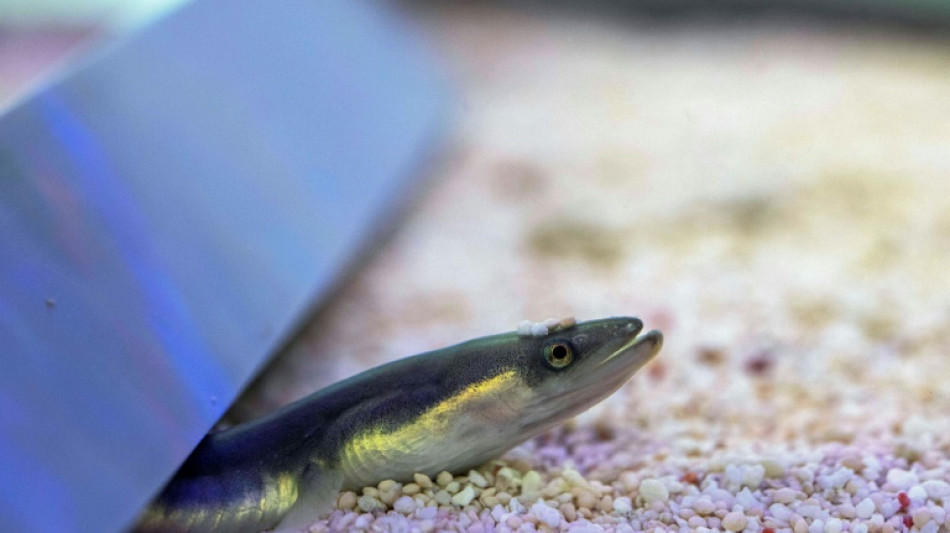
RBGPF
59.6900


Eels that have been swallowed by fish have been recorded for the first time sliding tail-first back out of their would-be predators' stomach and escaping out of their gills, a study said Monday.
The remarkable last-gasp getaway also marks the first time this kind of defensive tactic has been caught on video across the animal kingdom, according to the Japanese researchers.
The team behind the new study had already observed young Japanese eels surviving being eaten by sliding out of the gills of fish -- rather than out of the mouths that had swallowed them.
Nonetheless, the researchers had assumed the eels had been somewhat near the mouths of the fish when they broke free.
But the team was "really surprised" to find that the eels were all the way in the stomach of their predators before starting their escape bid, lead study author Yuha Hasegawa of Nagasaki University told AFP.
- Stomach turning -
Some eels even circled around the stomach several times before wriggling free, according to the study in the journal Current Biology.
To see what was happening inside the bodies of the predatory dark sleeper fish, the researchers injected them with fluid to increase the contrast for recording the results on an X-ray video system.
Out of 32 eels swallowed into the stomachs of the fish, all but four tried to escape by backing out through the digestive tract, towards the esophagus and eventually out the side door of the gills, the study said.
Thirteen managed to get at least some of their tails out of the gills, while nine went all the way and escaped with their lives.
The young eels, which were around seven centimetres (three inches) long, always went tail first. Unlike most fish, eels are skilled at swimming backwards, the researchers pointed out.
The whole process took around a minute. The eels could only survive around three minutes in the stomach acid.
The fish were not harmed when the eels burst free from their gills, Yuha Hasegawa said.
It was a "difficult" experiment, he added, and it took the team a year to capture convincing footage.
Previous research has shown that some invertebrates like worms can escape from the digestive system of frogs, but the inner workings have not been recorded on X-ray video.
Study co-author Yuuki Kawabata, also from Nagasaki University, said that scientists were only beginning to understand the "mysterious, astonishing" strategies that animals use to escape from predators.
He pointed out that Japanese eels are still offering up surprises despite being quite well known.
Fish are not the only animals with a taste for these eels -- they are a popular and expensive delicacy among many humans.
Japanese eels, called Unagi when cooked, make up the vast majority of commercially sold eel in Japan.
Overfishing has led the eels to be considered an endangered species by the International Union for Conservation of Nature.
J.P.Cortez--TFWP